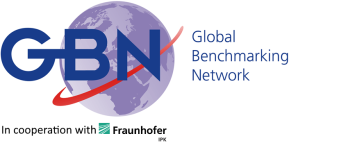Besides all the speeches we could listen to on stage the co-founder of GBN, Dr. Robert Camp, told us about the beginnings of benchmarking and gave his forecast for the future. Unfortunately, Dr. Robert Camp was not able to attend this year’s IBCON. Nevertheless, we had the opportunity to have a video chat with him and experience the history of benchmarking. You can find the entire interview as well as the individual topic blocks under the following link.
Thank you very much for the great interview, Bob!
Tell us more about your background of Benchmarking.
I had my first experiences at Xerox, which popularized Benchmarking.
I was relieved of all my duties for six months of the Vice President of logistic because he knew that Benchmarking was going to be demanded of all operations in the company.
We then searched around for companies that did that similar kind of function but not necessarily in our industry. A company had 3-times faster pickup operations than ours. We visited them and found certain Best Practices. The key learnings despite the Best Practices themselves were we would not want to exactly
What is Benchmarking for you?
You have to use a structured approach to change operations, doing that, Benchmarking has endured for these past several centuries for making
You really need three things to have successful change. First, you have to be able to show that there is a need for change, secondly you have to determine what you want to change and thirdly you need to paint a picture so you can come back to the organization and say „look, here is what it will look like when we are done“. Learning from others is now accepted in all economic sectors and around the world.
People choose to use Benchmarking as a part of their overall kit tools to improve.
How do you see the future of Benchmarking?
There are several considerations, first: we see the processes remaining the same, the key steps are what to benchmark, who to benchmark and then
The processes remain the same, but the technologies that support that processes are the things that are going to change in the future. Benchmarking is the search for exemplary work process methods. All the electronics that we have are
Examples are diagramming software or other
Besides key technologies, there is one more aspect and that is availability in nowadays projects. Results are not efficient cataloged. Today there are available pre-packaged benchmarking case studies for looking for. They are available in form of data basis of professional associations and other organisations that have interest in their members.
How was the first time benchmarking?
There was a huge disbelief and skepticism. Most of the people in organisations are very proud people and proud of what they have done for their organisations. Seeing that others do something so significantly different can be a huge shock. One big learning that came out of it: make sure, that there is adequate preparation. We need to focus on critical processes and obtain the true understanding of best practices.
Which special hints do you have?
First, we encourage people not to copy best practices, but to bring that understanding of best practice back to the
Secondly, ensure that the steps of the process are followed and do not stop with the results.
Thirdly, do not become obsessed with data, there a couple of leading indicators and 85% concentrate on the understanding and only 15% on creating performance indicators or leading key indicators.
Lastly, better use data basis in your searching process. You should use research libraries, people working there know what keywords are to be used. They should be part of the benchmarking process.
The Interview was conducted by our Secretary Jan-Patrick Cap
